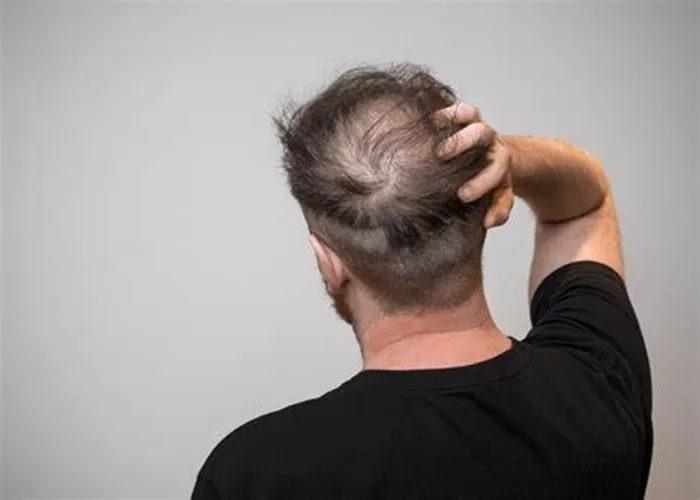Hair loss is a common concern that affects millions of people worldwide. Whether you’ve noticed more strands in your brush, on your pillow, or clogging the shower drain, excessive hair shedding can be distressing. The causes of hair loss are varied, ranging from temporary factors like stress to more persistent conditions such as genetic predisposition or medical illnesses. Understanding why you’re losing hair is the first step toward finding an effective solution.
The Natural Hair Growth Cycle
Before diving into the reasons behind hair loss, it’s essential to understand how hair grows. Hair follicles go through a continuous cycle with three main phases:
- Anagen (Growth Phase): This phase lasts between two to seven years, during which hair grows actively.
- Catagen (Transition Phase): A short period (about two weeks) where hair growth slows, and the follicle shrinks.
- Telogen (Resting Phase): Lasting around three months, hair doesn’t grow but remains in place before eventually shedding.
On average, people lose 50 to 100 hairs per day as part of this natural cycle. However, when shedding exceeds this range or new hair doesn’t replace what’s lost, noticeable thinning or bald patches may develop.
Common Causes of Excessive Hair Loss
Several factors can disrupt the hair growth cycle, leading to increased shedding. Some of the most frequent causes include:
Stress and Emotional Trauma
Physical or emotional stress can push hair follicles into the telogen phase prematurely, a condition called telogen effluvium. Significant stressors such as surgery, illness, childbirth, or severe emotional distress can trigger this type of hair loss. The shedding usually occurs two to three months after the stressful event and may last for several months before resolving on its own.
Nutritional Deficiencies
Hair follicles require a steady supply of vitamins, minerals, and proteins to function optimally. Deficiencies in key nutrients—such as iron, vitamin D, zinc, and B vitamins—can weaken hair structure and lead to excessive shedding. Crash diets, eating disorders, or poor dietary habits often contribute to these deficiencies.
Hormonal Imbalances
Hormones play a crucial role in regulating hair growth. Conditions such as polycystic ovary syndrome (PCOS), thyroid disorders (hypothyroidism or hyperthyroidism), and menopause can cause hormonal fluctuations that lead to hair thinning. Additionally, postpartum hair loss is common due to the sudden drop in estrogen levels after childbirth.
Genetic Factors (Androgenetic Alopecia)
Also known as male or female pattern baldness, this is the most common cause of progressive hair loss. It is hereditary and linked to the hormone dihydrotestosterone (DHT), which shrinks hair follicles over time. Men typically experience receding hairlines and bald spots, while women notice diffuse thinning across the scalp.
Medical Conditions and Medications
Certain illnesses, such as autoimmune diseases (alopecia areata), scalp infections (ringworm), or chronic conditions like lupus, can lead to hair loss. Additionally, medications for cancer (chemotherapy), blood pressure, depression, and arthritis may have hair shedding as a side effect.
Poor Hair Care Practices
Excessive use of heat styling tools, harsh chemical treatments (bleaching, perms), tight hairstyles (ponytails, braids), and aggressive brushing can damage hair follicles and cause breakage or traction alopecia.
How to Diagnose the Cause of Your Hair Loss
If you’re experiencing significant hair loss, consulting a dermatologist or trichologist is crucial. They may perform:
- Blood Tests: To check for deficiencies, thyroid issues, or hormonal imbalances.
- Scalp Biopsy: To examine hair follicles under a microscope.
- Pull Test: Gently tugging on hair to assess shedding intensity.
- Medical History Review: Identifying potential triggers like recent illnesses, medications, or lifestyle changes.
Effective Treatments and Prevention Strategies
The right treatment depends on the underlying cause of hair loss. Some effective approaches include:
Addressing Nutritional Deficiencies
Eating a balanced diet rich in protein, iron, omega-3 fatty acids, and vitamins can strengthen hair. Supplements like biotin, iron, or vitamin D may help if deficiencies are detected.
Managing Stress
Practicing relaxation techniques such as yoga, meditation, or deep breathing can reduce stress-related hair loss. Ensuring adequate sleep and regular exercise also supports overall hair health.
Medical Treatments
- Minoxidil (Rogaine): An over-the-counter topical treatment that stimulates hair growth.
- Finasteride (Propecia): A prescription pill for men that blocks DHT.
- Hormone Therapy: Birth control pills or anti-androgens for women with PCOS.
- Steroid Injections: Used for alopecia areata to reduce inflammation.
Hair Care Adjustments
- Avoiding tight hairstyles and excessive heat styling.
- Using gentle, sulfate-free shampoos.
- Massaging the scalp to improve blood circulation.
When to Seek Professional Help
While some hair loss is temporary and resolves on its own, persistent or severe shedding warrants medical attention. Signs that you should see a doctor include:
- Sudden, patchy hair loss.
- Bald spots or receding hairline.
- Itching, pain, or redness on the scalp.
- Hair loss accompanied by other symptoms like fatigue or weight changes.
Conclusion
Hair loss can be a frustrating and emotional experience, but in many cases, it is treatable. Identifying the root cause—whether it’s stress, diet, hormones, or genetics—is key to finding the right solution. By adopting healthier habits, seeking medical advice when needed, and being patient with the regrowth process, you can take control of your hair health and reduce excessive shedding. If you’re concerned about your hair loss, don’t hesitate to consult a specialist who can guide you toward the most effective treatments.
Related topics:
- Understanding Hair Loss Surgery: Costs, Options, and Considerations\
- The Cost of Hair Loss Treatment: A Comprehensive Guide
- Choosing the 6 Best Oil for Hair Fall: An Ultimate..


